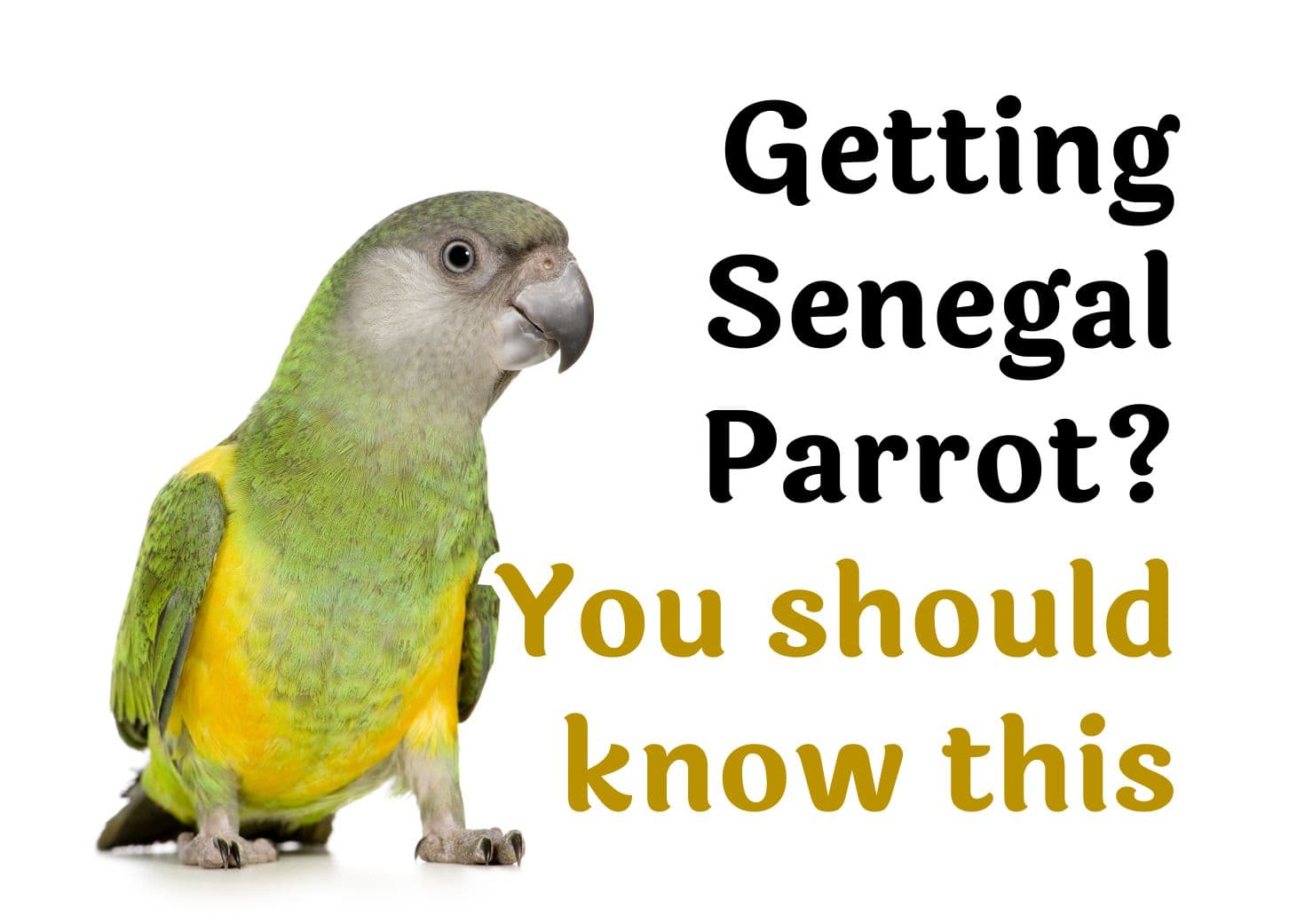20 Questions to Consider Before Getting a Senegal Parrot

If you're thinking about bringing home a Senegal parrot, you're in for a treat. These charming little birds are colorful, clever, and surprisingly beginner-friendly—for a parrot, that is. I’ve spent a lot of time around different bird breeds, and Senegal parrots (or “Sennies,” as some of us affectionately call them) really do strike a nice balance between playful and manageable. Here’s what you should know before bringing one home.
What Makes Senegal Parrots Great Pets?
Senegal parrots are small (about 9 inches long), relatively quiet, and wonderfully affectionate—especially if they bond with you early on. They’re naturally social, though they often pick a favorite person. If you’ve got a bigger household, you’ll want to spend some time helping them get comfortable with everyone.
They’re not the most talkative parrots, but they can pick up a few words and mimic sounds really well. That said, don’t expect full conversations—think more along the lines of fun little phrases and sound effects.
Are They Good for Beginners?
As far as parrots go, yes. Sennies are one of the more beginner-friendly options. They’re less noisy, less destructive, and less demanding than many of the larger parrot species. But—and it’s a big but—they’re still parrots. That means they’re intelligent, emotional, and they need daily interaction and stimulation. If you’ve never had a bird before, be prepared to put in the time to learn and adapt.
Handling and Bonding
With proper socialization, Senegal parrots love to be handled and can even be cuddly. But like any parrot, they need to be taught gently. If you rush the process or don’t handle them regularly, they might nip—and yes, their bite can hurt, even if they’re smaller than a macaw.
Letting them out of their cage daily is a must. An hour or more of supervised out-of-cage time is ideal, both for bonding and exercise. I always recommend setting up a play stand or bird-safe area where they can stretch their wings and interact with you.
What About Their Cage and Environment?
Even though they’re small, Senegal parrots need a spacious cage—bigger is always better. The minimum size I’d suggest is 20x20x28 inches. Add plenty of perches, chewable toys, and horizontal bars for climbing. Rotate toys often to keep things fresh and interesting.
Bird-proof any room your parrot will be exploring. That means covering windows, removing anything toxic or chewable, and blocking off small spaces they could disappear into.
Diet and Health
Feeding a Senegal parrot isn’t complicated. They’re vegetarians, so a mix of fresh fruits, veggies, and bird-safe seeds like chia, flax, and hemp works great. Avoid sugary or fatty treats, since they can gain weight easily. A quarter cup of food a day is about right, but always keep fresh, clean water available and change it daily.
Health-wise, they’re fairly hardy. Just keep an eye out for signs of illness like weight loss or changes in droppings. Two diseases to be aware of are aspergillosis (a fungal infection often linked to poor air quality or hygiene) and bornavirus (a serious condition that affects digestion). The best defense is good hygiene and regular vet checkups.
Are They Good with Kids or Other Pets?
Sennies can be great with older kids who understand how to be gentle, but I’d be cautious with toddlers. As for other pets, it really depends. Dogs and cats are natural predators, so unless they’re exceptionally calm and trained, I wouldn’t risk leaving them alone with a parrot.
Interestingly, while Senegal parrots love people, they don’t usually get along with other birds—including other Senegal parrots. They can be territorial and aggressive, so it’s best to keep them as solo birds.
Lifespan and Long-Term Commitment
One of the best things about Sennies is their lifespan—they can live up to 30 years with proper care. That’s a serious commitment, but it also means you’ll have a feathered friend by your side for decades.
Final Thoughts
If you’re ready to dive into the world of parrots but don’t want to be overwhelmed, the Senegal parrot is a fantastic choice. They’re smart, affectionate, and quieter than most parrots, with just enough personality to keep things interesting. Just remember—they’re not low-maintenance pets. But if you’re up for learning and bonding, a Senegal parrot can be an incredibly rewarding companion.
